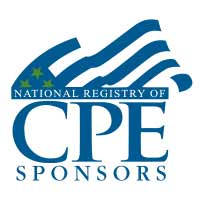
An Intensive 5-day Training Course
PHA HAZOP Professional
- Format: Classroom
- Duration: 5 days
- Language: English
- Accredited: CPE, KHDA Certified training courses
CLASSROOM DATES
INTRODUCTION
Process hazard analysis (PHA) is a key requirement of OSHA's Process Safety Management (PSM) standard, 29 CFR 1910.119. These regulations require that PHA address toxic, fire and explosion hazards resulting from specific chemicals (called major hazards herein) and their possible impacts on employees, the public and the environment. The specific chemicals are defined in the regulations and are called Highly Hazardous Chemicals by OSHA. The regulations specify six acceptable PHA methods but also allow the use of "an appropriate equivalent methodology".
Of the six PHA techniques listed in the PSM and RMP regulations, only HAZOP was developed specifically for use in the chemical process industries. The course will give an understanding of when formal identification of hazards is required and an understanding of the role of Hazard Identification in safety justification and design details of the different techniques for Hazard Identification and their advantages and disadvantages.
HAZOP and What-If reviews are two of the most common petrochemical industry qualitative methods used to conduct process hazard analyses. Up to 80% of a company's process hazard analyses may consist of HAZOP and What-If reviews with the remainder 20% from Checklist, Fault Tree Analysis, Event Tree, Failure Mode and Effects Analysis, etc.
A review team led by an experienced Team Leader can use the analysis to generate possible deviations from design, construction, modification, and operating intent that define potential consequences. These consequences can then be prevented or mitigated by the application of the appropriate safeguards. OSHA expects that process hazard analysis (PHA) Team Leaders be qualified to lead PHAs either by experience prior to the issuance of the PSM standard (which was promulgated in 1992) or through training.
This EuroMaTech training course helps prepare Team Leaders to lead and facilitate study teams in PHA.
TRAINING OBJECTIVES
Hazard Analysis (HAZAN) studies are the foundation for process safety and risk management of highly hazardous process systems. They help companies identify and quantify the effect hazard scenarios that could adversely affect people, property, or the environment. The course focuses on HAZOP for team leaders. It also covers What-lf checklists and explains how other PHA methods such as HAZAN, HAZID & LOPA can be used to identify potential process hazards and potential operational difficulties.
WHO SHOULD ATTEND?
Engineers, PSM Specialists, and others responsible for leading PHA studies.

TRAINING METHODOLOGY
The EuroMaTech training course will combine presentations with interactive practical exercises, supported by video materials, activities and case studies. Delegates will be encouraged to participate actively in relating the principles of HAZOP to the particular needs of their workplace.
TRAINING SUMMARY
The attendees will be reminded that a HAZOP or What-If report is a living document for a facility. As changes are made to a facility or its procedures the PHA review(s) will need to be updated to represent the current facility and is required by law to be updated and revalidated every five years.
PHA teams use engineering judgment to decide if additional safeguards are needed to protect against accident scenarios they identify. HAZOP is used to evaluate scenario risk and compare it with risk tolerance criteria to decide if existing safeguards are adequate, and if additional safeguards are needed. Without risk tolerance criteria, there is a tendency to keep adding safeguards in the belief the more the safer. This can be a false assumption. Eventually unnecessary safeguards will be added that may add complexity that can result in new unidentified hazard scenarios. LOPA will also be explained as it helps to focus limited resources on the most critical safeguards.
HEMP, FMEA and Bow-ties techniques for advanced risk analysis will also be illustrated.
In addition to receiving expert instruction on leading a PHA team, study teams will be formed with other participants where each will take turns leading the team. This workshop exercise is overseen by an instructor who will give feedback on the participants performance.
PHA software will be demonstrated during the instruction sessions.
Upon completing this course you will receive certification of training. The certificates shall attest to the participation of the course “PHA Leader/Facilitator”.
The course provides you with specific detailed guidelines for facilitating PHA studies, including PHA Revalidations. Participants will discover the tactics and success factors that help ensure a successful study.
TRAINING OUTLINE
Day 1 : HAZOP and What if Check Lists
- Inherent Safety Review
- Preparing and Organizing PHA Studies
- Objective and description of HAZOP and what-if reviews
- HAZOP and what-if review procedures
- Team members, qualifications and responsibilities
- Leadership Skills for Managing the Team
- Team Leader Roles:
- o Leading & Management of PHA Studies
- o Subdividing the Process for Study
- o Choosing Parameters and Deviations
- o Planning, Conducting & Documenting PHA Revalidations
- o Schedule and cost estimates
- o Handling and resolution of recommendations
- o PHA Report review and approval
- o Managing the Follow-Up of PHA Results
- Recording PHA Studies the PHA Worksheet
- Meeting Regulatory Requirements
- Human Factors in PHAs
- PHA for Process Changes
- PHA for Procedures and for Batch Processes
- Quality Control in PHA Studies
- HAZOP example – (Instructor led workshop)
Day 2 : HAZAN
- The stages of hazard analysis Some of the targets or criteria
- Risks to employees - The Fatal Accident Rate (FAR) - To convert FAR to hazard rate
- Risks to the public
- Remove first the risks that are cheapest to remove!
- Estimating how often an incident will occur
- Examples - HAZAN
-
- 1 Relief valves
- 2 Simple trips
- 3 Frequent demands on a trip
- Two protective systems: parallel or in series?
- Fault trees
- Pitfalls in hazard analysis
- Data may be inapplicable or outdated
- Data affected by maintenance policy
- The impossibly low fractional dead time
- More about common mode failures
- A summary of the main sources of error in hazard analysis
- Objections to HAZOP and HAZAN
- The stages of hazard analysis Some of the targets or criteria
- Risks to employees - The Fatal Accident Rate (FAR) - To convert FAR to hazard rate
- Risks to the public
- Remove first the risks that are cheapest to remove!
- Estimating how often an incident will occur
- Examples - HAZAN
-
- 1 Relief valves
- 2 Simple trips
- 3 Frequent demands on a trip
- Two protective systems: parallel or in series?
- Fault trees
- Pitfalls in hazard analysis
- Data may be inapplicable or outdated
- Data affected by maintenance policy
- The impossibly low fractional dead time
- More about common mode failures
- A summary of the main sources of error in hazard analysis
- Objections to HAZOP and HAZAN
-
- Insufficient data are available for meaningful calculations
- The models of the accidents are oversimplified and they bear little relation to reality
- Human errors, including management errors, cannot be allowed for
- The resources required are excessive
- It cannot be applied to industrial disease
- It is often done badly
- HAZAN example – (Instructor led workshop)
Day 3 : LOPA and Other Methods
- PHA and Layers of Protection Analysis (LOPA) Overview
- Process Safety Concepts
- Select Scenarios and Identify Initiating Events
- Identify Existing IPLs
- Estimate Scenario Risk
- Making Risk Decisions
- Documenting LOPA Studies
- Worked Examples
- Implementation Issues for LOPA
- HAZID
- HEMP
- FMEA
- Bow-ties techniques
- Software review
- Workshop –PHA software (Client software demonstration if available prior to the study)
Day 4
- Workshop: Using software to prepare for and document hazard evaluations/risk reviews
- HAZOP technique - Workshop: Example HAZOP (instructor-led)
- Workshop: HAZOP review of a continuous process - Analysis documentation, results, and follow-up
Day 5
- HAZOP/what-if techniques for analyzing procedures and batch processes
- Workshop: Example HAZOP of a procedure (instructor-led)
- Workshop: HAZOP/what-if reviews of batch processes and procedures
- Course review and roundup
CALL ME BACK
Do you wish for us to conduct this course at your premises?
Discover In-House Solutions
ACCREDITATION

EuroMaTech is registered with the National Association of State Boards of Accountancy (NASBA) as a sponsor of continuing professional education on the National Registry of CPE Sponsors. State boards of accountancy have final authority on the acceptance of individual courses for CPE credit.

Euromatech is a Knowledge & Human Development Authority (KHDA) approved training institute in Dubai, licensed and approved to deliver training courses in the UAE.
The KHDA is the regulatory authority in the UAE, that oversees administering, approving, supervising, and controlling the activities of various education providers in the UAE. We are proud of our commitment to ensuring quality training courses and status as a KHDA-approved training provider.
Taught by our team of highly qualified trainers, our KHDA approved training courses will provide you with an enriching learning experience and practical knowledge that will help you future-proof your career and support professional development within your organisation.

